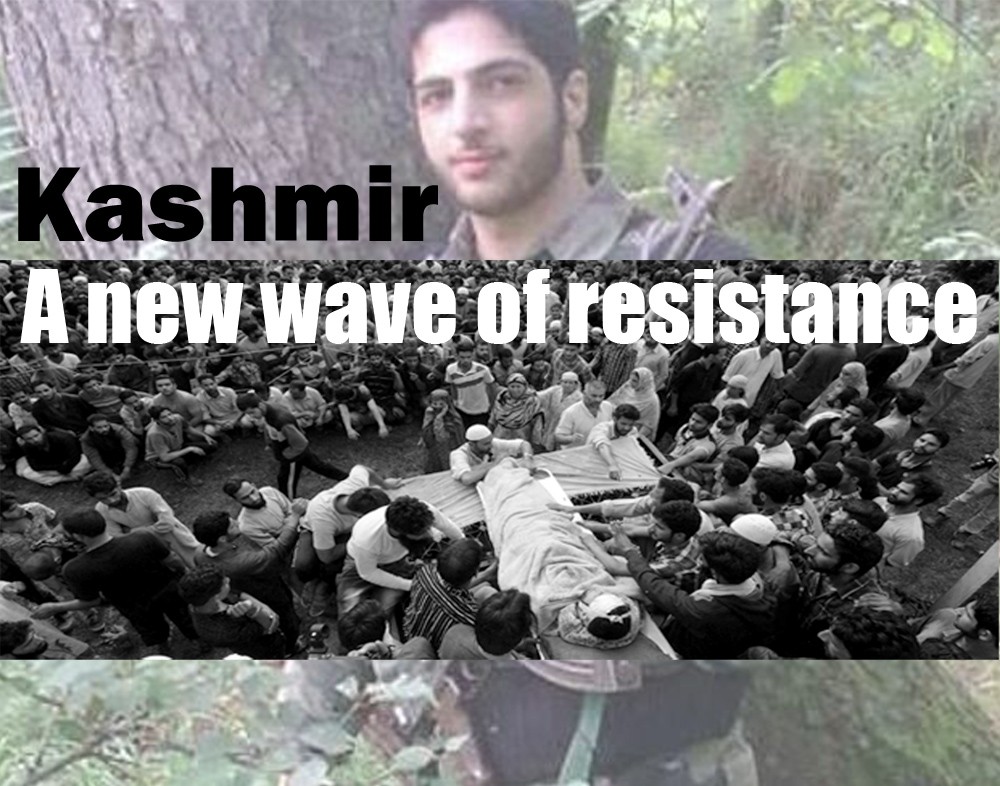
Looking at the current wave of resistance in Kashmir and how it is impacting the indigenous movement

Sitting in Pakistan, it is not easy to tell the story of Kashmir from any other angle. However, a part of our Special Report today is an attempt to tell this story from the point of view of Kashmir and its people.
The current wave of resistance in Kashmir, especially following the killing of 21 year old Hizbul Mujahideen fighter Burhan Wani, is turning out to be an indigenous movement operating without a leader; even though a dead Wani seems to be leading it, in a way.
The Indian forces’ brutality -- in the forms of curfews, stone pelting guns, deaths and injuries of scores now running into hundreds, and banning of news media -- is not putting an end to the rage of the youth who will not settle for anything less than their freedom -- azadi as they call it.
Of course, as Basharat Peer notes in his interview, the speed of brutality may be the only new thing this time, but so is the speed with which the news of this brutality is spreading. Wani was literally a social media star who used the social media so smartly that it became important for the security forces to eliminate him.
However, the ‘bigger beast’ in the form of social media remained and it was here that the news of his death spread and reportedly brought no less than two hundred thousand people to his funeral. There has been no let-up in the commitment of the youth since then who see in Wani a model worth emulating, and hence no let-up in the tragic news emerging from the valley in the last two weeks.
Read also: Kashmir A new wave of resistance
It may be because of a very alive social media that the mainstream Indian media is forced to cover Kashmir, and there is certainly a lot more that is being heard about the Indian state’s highhandedness, no matter how the news is framed. Soon after Wani’s killing, we also saw a strongly worded "Citizens’ Statement on Kashmir" from India.
Apart from the Kashmir side, we have also tried to see how the current wave of resistance will impact the India Pakistan peace process which is already moving rather slowly.
From Pakistan’s standpoint -- of Kashmir as "the unfinished agenda of partition" -- what we have not covered is the moral case that Pakistan has (or doesn’t have) in Kashmir, considering how it has treated its own smaller nationalities including the Baloch.